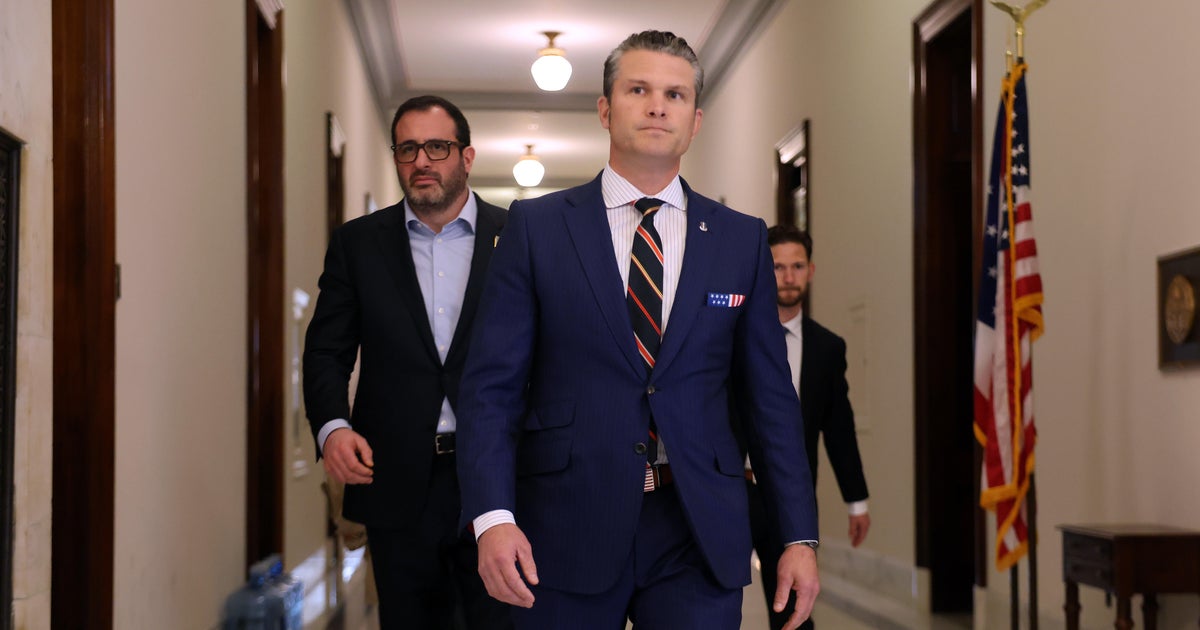Judge denies Trump's request to block release of documents to January 6 committee
Washington — A federal judge late Wednesday denied former President Trump's appeal of her earlier decision denying his request to block the release of documents that were requested by the House select committee investigating the January 6 Capitol attack.
"This court will not effectively ignore its own reasoning in denying injunctive relief in the first place to grant injunctive relief now," Judge Tanya Chutkan wrote. She added that Mr. Trump can look to the appeals court for any relief he seeks. "Plaintiff can seek appellate relief in the interim."
Last month, Mr. Trump sued the committee and the archives in an attempt to halt the transfer of his records, citing executive privilege.
Late Tuesday, Chutkan ruled against him, allowing the records transfer to go forward as scheduled on November 12. Attorneys for the former president immediately appealed Tuesday's ruling to the D.C. Circuit Court of Appeals. The case now sits before the D.C. Circuit Court of Appeals.
The former president alleged in his lawsuit that his White House records are subject to a certain level of confidentiality. Mr. Trump has alleged they are protected under executive privilege, the idea that a sitting president's private communications should be shielded from public scrutiny. He also argued the request by Congress was an invalid fishing expedition.
The committee says it needs the documents to further understand the events leading up to, during, and following the January 6 assault on the Capitol. Citing that reasoning, President Biden has already rejected his predecessor's claim of executive privilege and permitted the National Archives to comply with the House committee's request for the documents. As a result of Mr. Biden's decision, Mr. Trump filed his lawsuit.
"At bottom," Chutkan wrote in her ruling Tuesday, "this is a dispute between a former and incumbent President. And the Supreme Court has already made clear that in such circumstances, the incumbent's view is accorded greater weight."
Therefore, she reasoned, Mr. Biden's decision to allow the release of the records take precedence.
"Presidents are not kings, and Plaintiff is not President," she wrote about Mr. Trump.
Addressing the issue of presidential confidentiality, Chutkan wrote, "the Constitution does not expressly define a President's right to confidential communications ... the privilege is not absolute." The former president's claims of confidentiality in this case, she ruled, do not hold water.
And while the judge agreed that Congress' request for the Trump White House documents "cast a wide net" in its breadth, she ultimately concluded, "the court will not second guess [the Committee's request] by undertaking a document-by-document review that would require it to engage in a function reserved squarely for the Executive." Mr. Biden had already made the decision.
Notably, Chutkan also identified many of the valid reasons the House Committee may need the archived records to prevent an attack like that of January 6 from happening again. Those reasons included "enacting amending criminal laws to deter and punish violent conduct targeted at the institutions of democracy ... imposing structural reforms on executive branch agencies to prevent their abuse for antidemocratic ends ... and reallocating resources and modifying processes for intelligence sharing by federal agencies charged with detecting, and interdicting, foreign and domestic threats to the security and integrity of our electoral processes."
In her opinion, Chutkan, who has in her court many of the cases involving defendants accused of participating in the January 6 riot, described the event as an "unprecedented attempt to prevent the lawful transfer of power." She added later that "for the first time since the election of 1860, the transfer of executive power was distinctly not peaceful."
The "public interest," she decided, weighed in favor of releasing the documents to the Committee charged with investigating the attack.
Since the former president filed his lawsuit, the National Archives has revealed that it identified more than 1,500 pages pertinent to the committee's request. These include daily presidential diaries, the files of then-White House chief of staff Mark Meadows, multiple binders belonging to then-White House press secretary Kayleigh McEnany, and White House talking points alleging voter fraud in the 2020 presidential election.
The matter now heads to the D.C. Circuit Court of Appeals ahead of the November 12 deadline for the document transfer.
House Speaker Nancy Pelosi created the House select committee earlier this year to investigate the January 6 attack, when thousands of Trump supporters descended on the Capitol as Congress counted the electoral votes, a largely ceremonial final step affirming Mr. Biden's victory. Lawmakers were sent fleeing amid the riot, which led to the deaths of five people and the arrests of hundreds more. Mr. Trump, who encouraged his supporters to "walk over" to the Capitol during the Stop the Steal rally, was impeached by the House one week later for inciting the riot but was later acquitted by the Senate.




